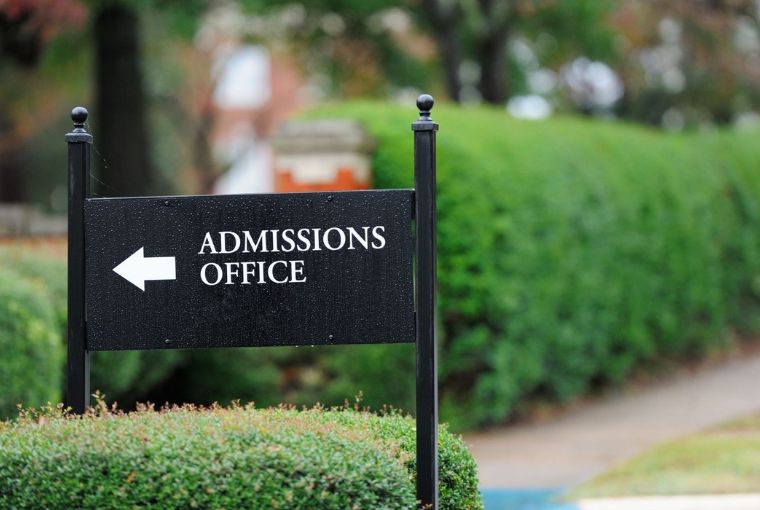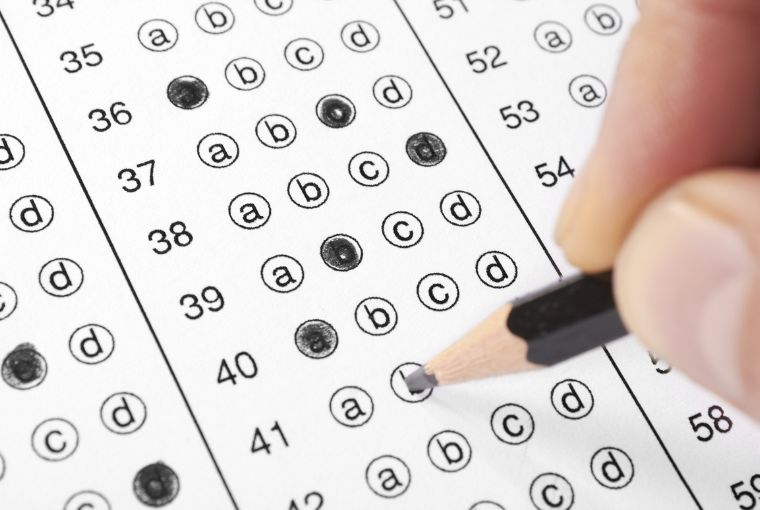What It Takes to Enroll in UK

Enrollment to higher education institutions and independent schools in UK, depends majorly on the student’s past academic performance and English language proficiency.
Prospect students begin reviewing the admission requirements far in advance to be able to have sufficient time in completing all admission requirements. Admission requirements to universities in UK vary depending on different institutions and programs one wishes to apply to. An admission requirement might include taking a prerequisite course, collecting proofs of studies, writing applicable tests, etc...

Admission Requirements
Admission requirements in UK vary widely depending on the studying program of choice, since they’re entirely set exclusively by the college or university itself. Actual admission is mainly dependent on the student’s past academic qualifications.
An admission test, a personal statement, a resume reference, and/or an interview are all prospect admission requirements to further asses a student’s educational level before actually making the decision to admit them. For international student (from non-English speaking countries), however, there’s also the extra requirement of completing an English language test to demonstrate their proficiency in the language.
Enrollment Requirements
Students are required to have successfully attained prior levels of qualifications to ensure they have the skills and knowledge required to complete their chose higher education course.
Undergraduate Level Courses Admission Requirements
For undergraduate level courses, students are required to prove completion of A-levels, advanced higher or equivalent level qualifications. Each course and/or institutions require different marks in order to consider the student as an enrollment caliber. More competitive or in-demand courses higher grades for students to gain their admission. Pre-16 qualifications such as: GCSE English and Math or its equivalents are required as well as knowledge in subjects related to their higher education course, better known as Prerequisite Courses.
For example: admission into Engineering programs requires the completion of Grade 12-equivalent math courses.
Postgraduate Master’s Program Admission Requirements
Applying for a Master’s or Doctorate program has to be done after acquiring a Bachelor degree. PhD programs require students to have a Master’s degree first.
Personal Statement

Most colleges require a demonstration of suitability for the specific course a student is applying for, through a written personal statement.
A personal statement should discuss the following:
Interest in the Course: Why has the student chosen the particular course? Why do they think they are suitable for the course?
Skills and Achievements: Any awards won, any positions of responsibility held, achievements student is proud of, attributes that make them interesting. Universities like to know the skills a student has that will help them on the course, or generally with life at university.
Hobbies and Interests: Students can use these to demonstrate their personality, skills and abilities. Try to link them to the skills required for the course(s).
Work Experience: Include details of placements, work experience, voluntary work, or jobs, especially if it is relevant to the chosen course(s).
Gaps in Education (if applicable): Explain what the student was doing since leaving education.
Future Plans: What does the student want to do after their graduation? How will they use the knowledge and experience they’ll gain through the course? How does the course relate to what you want to do in the future?
Why UK: Why do students want to study in the UK?
Personal statements are a great way for a student to stand out over other applicants. Find out how to Create the Perfect Personal Statement now.
English Language Requirements

Since English is the primary language of instruction in the UK, students applying from a non-English speaking country need to demonstrate English proficiency through an English language qualifications test as part of the admission process. Standardized English language tests evaluate students on their reading, listening, speaking and writing skills.
The following tests are commonly accepted for entry into degree-level courses:
- International English-Language Testing System (IELTS) - Academic and UKVI
- Test of English as a Foreign Language (TOEFL) - Internet-Based Test (IBT)
- Trinity College’s Integrated Skills in English (ISE)
- Pearson Test of English (PTE)
- Cambridge Advanced Certificate in English (CAE)
- Cambridge Certificate of Proficiency in English (CPE)
- English Language GCSE, A-Level or IB
Language test scores required for admission vary by institution and by program. Some institutions only look at the overall grades, while others have cut-offs for scores in each of the four skills sections. Typically, students applying to an undergraduate course need:
- IELTS scores between 5.5 and 6.5 (usually 6.0), with no band less than 5.5 or 6.0
- TOEFL (internet-based test, iBT) scores between 60.0 and 90.0 overall
- PTE Academic score between 50 to 64 overall
- CAE or CPE scores between 169 to 176 overall, with no less than 169 in each category. Minimum language requirements are often stricter for postgraduate and professional programs (e.g. IELTS score of 7.0). Foundation and pre-sessional English courses, on the other hand, usually require lower minimum language test scores than undergraduate courses.
You can always refer to look up admissions requirements for a specific course on the ApplyBoard platform.
Application Deadlines

An academic year typically begins in September in the UK, and includes three terms: Autumn/Fall (September to December), Spring (January to April) and Summer (May to August). Since the calendar year begins in Autumn, most institutions offer admission for entry in September, but selected undergraduate programs also accept students for Spring and Summer intakes. Additionally, some institutions also offer courses at multiple times during the year and therefore have varying deadlines for each start date.
Application deadlines are based on start dates to give students sufficient time to prepare themselves, get their visa and come to their chosen university or college. Much like admission requirements, application deadlines are also set by individual education providers, and can also vary from course to course. Students should always review the application deadlines for the specific courses and institutions they’re interested in to avoid missing a deadline.
In general, admission deadlines (for September intake) for undergraduate courses are:
- Mid-October: for course at the universities of Oxford and Cambridge, and for most courses in medicine, veterinary medicine/science, and dentistry.
- Mid-January: for the majority of courses
- End of June or Until Course Fills Up: recommended final deadline for international students to ensure they’ll have enough time to apply for and obtain a visa after receiving their confirmation of acceptance (CAS).
Postgraduate degree programs often have a lengthier application process and stricter applications deadlines. Postgraduate diploma and certificate programs follow similar deadlines as those outlined above.
Interview
Many education providers will also invite shortlisted students for an interview before making their admission decision. Interviews can take place over the telephone, video call, or in-person if a student is able to travel to the institution. A lot of British institutes also have overseas teams, which hold interviews in major countries around the world. Interviewers will ask questions relating to the student’s background, current study plans, and future career aspirations. The interview also helps the university ensure that the student is coming to the UK for genuine study purposes and has a realistic prospect of returning home once their studies have finished.
References
References should ideally come from someone who knows the student academically and can talk about their work ethic, interaction with other students, and their suitability for higher education or a future career. These include teachers, principals, tutors or coaches. Past or current supervisors can also provide references if a student left education years ago, or if students are applying for programs related to their work, such as if a student applying into a medical program was working or volunteering at the hospital, or if a student is applying for an MBA program. Referees who supervised or coached a student in their volunteer positions or extracurricular activities, and can speak about the student’s work ethic, leadership, teamwork, and intrapersonal skills are also often accepted. Friends and family members, on the other hand, cannot be used as references.
UK Admission Requirements for International Baccalaureate Students
The student must pass the international diploma at a rate of not less than 30 and the required rate varies from one university to another and from one specialization to another. The universities may specify the name of the required materials to pass the application in addition to the required rate. The International Baccalaureate allows students to enter universities in UK in the first year.
UK Medical Studies Requirements
If you’re looking to study medicine at a UK university, you must pass the UKAT test. This test is conducted through the Internet and its purpose is to determine the scientific ability of the student. The test is divided into several parts through which the student can be evaluated whether to be accepted or not. These tests are divided into:
A verbal logic test that aims at knowing how to think logically and using the information correctly.
Quantitative testing aims to solve some numerical problems at a specific time.
The abstract logic test aims at acquiring relationships by gathering information through different means of thinking.
Want to Study in UK? Contact us
As a leading middle east International Education Consultants, Studygram.me can help you start your application into a UK university. Contact us and get complete assistance for choosing the right university and study program. Request your free consultation today. Or give us a call at (965) 2240 1416 or leave us a message on WhatsApp (965) 5077 5711 and we will contact you back.
Studygram.me - Your Gateway to Worldwide Education


